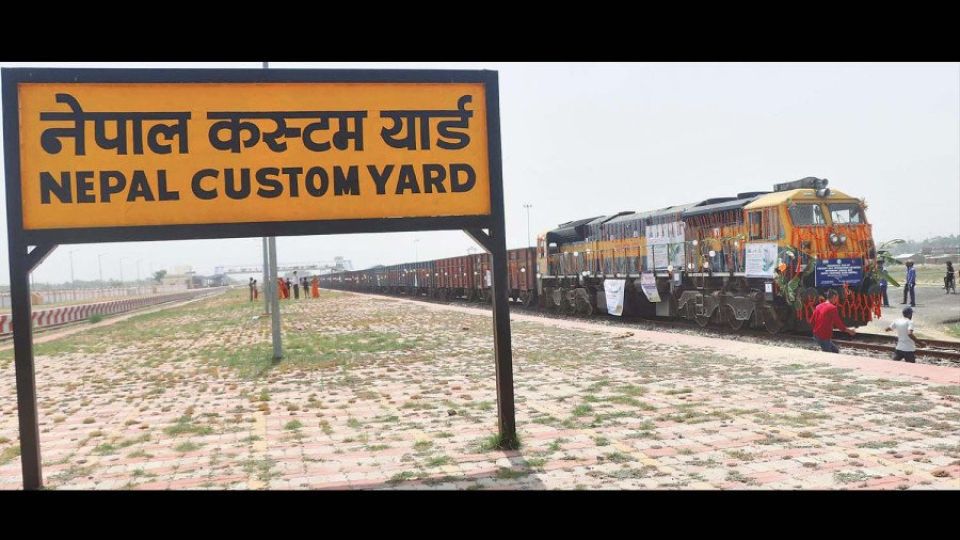August 10, 2023
KATHMANDU – Indian External Affairs Minister S Jaishankar has said there has been a sea change in India’s infrastructure development due to improved connectivity with Nepal after the Bharatiya Janata Party came into power in 2014.
The “easier movement” and connectivity between Nepal and India were creating bigger business opportunities in Indian states such as Uttar Pradesh, Jaishankar said at an interaction with journalists in New Delhi on Monday.
Jaishankar was briefing journalists on India’s infrastructure efforts with northern neighbours like Nepal, Bhutan, China, and others in the past nine years after the BJP came to power in India.
There has been a sea change because of infrastructure development on our side with Nepal that will be benefiting all the areas from Uttarakhand to West Bengal, The Hindu quoted Jaishankar as saying.
The minister told reporters that New Delhi is also improving road and rail infrastructure with Bangladesh, Nepal, and Bhutan.
He said that India was in talks with Bhutan to establish a rail link between India’s Assam state and the Buddhist kingdom.
After Modi came to power, India has ramped up infrastructure- and connectivity-related projects in Nepal and some of them are cross-border projects.
India, on March 2021, handed over 13 of the 14 packages of the Postal Highway (Hulaki Rajmarga), which connects major towns located on the East-West highway with the India-Nepal border, after the completion of the construction works.
In April, a section of the Jayanagar-Kurtha section of the railway that connects India’s Jayanagar to Nepal’s Bardibas was jointly inaugurated by the prime ministers of Nepal and India. The Jayanagar-Bijalpura-Bardibas rail link is going to be completed very soon whose investment cost would be IRs5.48 billion, according to the Indian Embassy.
The government of India, said the embassy, will spend IRs3.95 billion for another cross-border railway, the under-construction Jogbani-Biratnagar rail link, and has already spent IRs5 billion on the under-construction Postal Highway. Other infrastructure projects that India is currently implementing in Nepal are the East-West fibre optics (IRs740 million), the integrated check-posts at Birgunj (with IRs1.3519 billion spent on Nepal’s first-ever integrated check-post), Biratnagar (IRs1.3973 billion), Nepalgunj (under construction, IRs1.4712 billion) and Bhairahawa (in process).
India has also helped Nepal with the construction in 2019 of the Motihari-Amlekhgunj Petroleum Pipeline (IRs3.24 billion), South Asia’s first cross-border petroleum product pipeline, which the Indian embassy said reduced fuel prices by NRs2 a litre and spared roads from congestions.
The objective of these projects is to facilitate greater people-to-people contact, the Indian minister said at the briefing. He highlighted the Raxaul-Kathmandu rail link project and said it was in the stage of “final location survey.”
“Once completed, it will connect Kathmandu to India, by train,” Jaishankar said, according to The Hindu.
One official at the Ministry of Physical Infrastructure and Transportation said that the government of India has already submitted the final location survey of the Raxaul-Kathmandu railway to the government of Nepal for its review and consideration.
The final location survey, which was prepared by India’s Konkan Railway Corporation Limited, was handed over to the government of Nepal in July second week via the Ministry of Physical Infrastructure and Transportation.
Rohit Kumar Bisural, director general at the Department of Railway, confirmed the receipt of the final location survey and said his office is studying it.
The survey has shown that the project is feasible. As per the final report, it will cost around $3 billion (not factoring the cost of land acquisition, which will be borne by the government of Nepal) to build the 141-kilometre-long railway connecting Raxaul with Kathmandu.
Jaishankar told journalists that border infrastructure initiatives have brought major improvements in India’s relations with neighbours like Nepal, Bangladesh, Bhutan, Myanmar and Sri Lanka.
The train to Raxaul, which will be 136-139km long, is seen as New Delhi’s attempt to counter Chinese influence in Nepal, Organiser, the mouthpiece of India’s RSS, quoted Jaishankar as saying.
Jaishankar also spoke about enhanced cross-border power trade between Nepal and India and Indian efforts in making fuel supply to Nepal seamless through oil pipeline projects.
He said the supply of power from India, the transit facility for power from Nepal, and the generation at the Indian-built ‘Maitri’ (friendship) plant is changing the energy landscape.
“As with Nepal, our neighbourhood-first policy is focusing on rail, road, railway, border facilitation, electricity transmission and fuel supply with Bangladesh,” news agency IANS reported, referring to the meeting between Jaishankar and journalists.
He said notable progress has been made in setting up integrated check posts (ICPs) in Birgunj-Raxaul, Biratnagar-Jogbani, and Nepalgunj-Rupaidiha border points. He said work is beginning on the Bhairahawa-Sunauli ICP and an agreement was signed for ICP in Chadani-Dodhara during the visit of prime minister Pushpa Kamal Dahal to India in May.
“The Kurtha- Bijalpura segment has been operationalized and the Bijalpura—Bardibas segment is being surveyed. The Jogbini-Biratnagar link was opened for cargo traffic in 2023,” IANS reported quoting Jaishankar.


